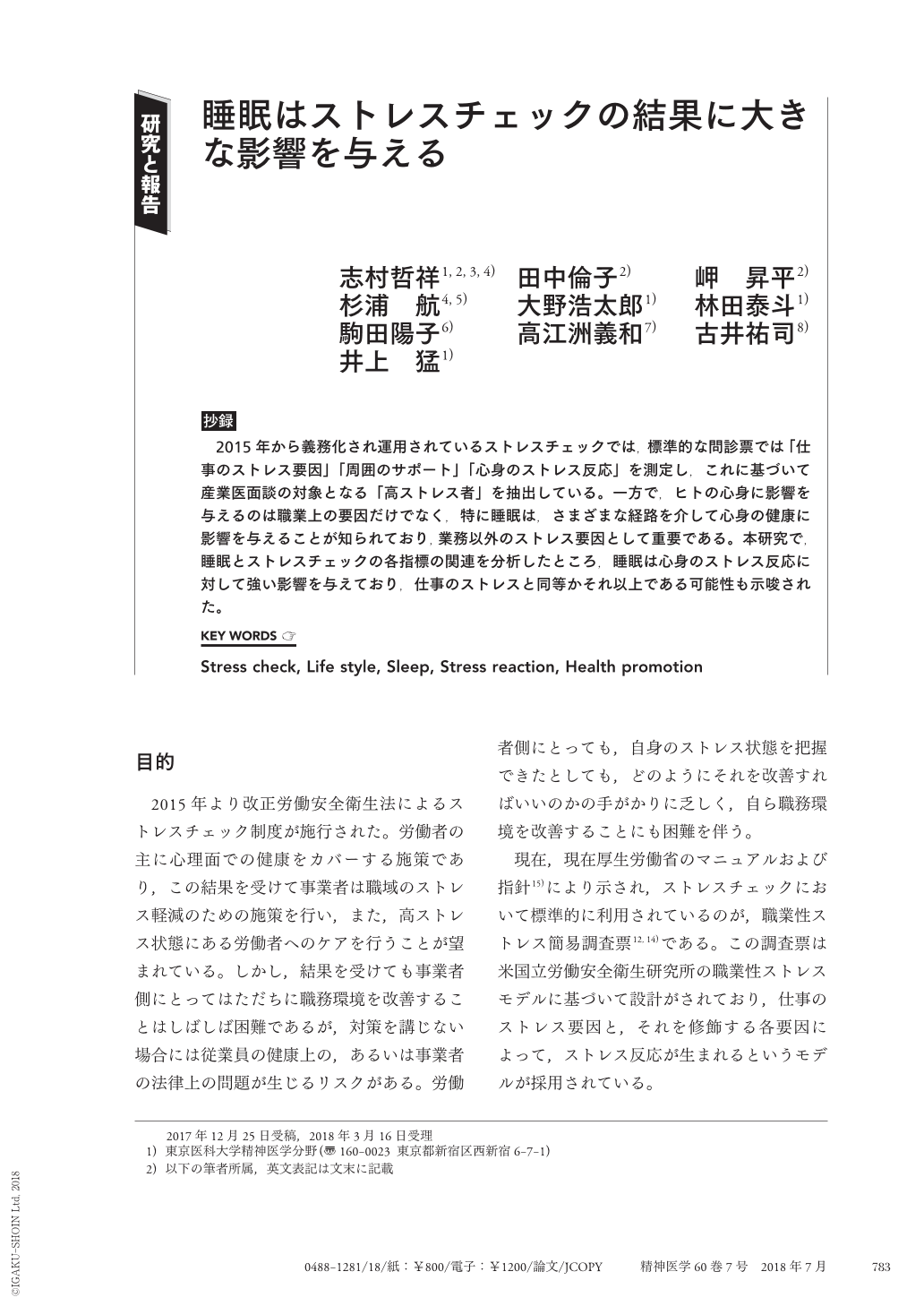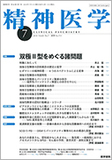Japanese
English
- 有料閲覧
- Abstract 文献概要
- 1ページ目 Look Inside
- 参考文献 Reference
抄録 2015年から義務化され運用されているストレスチェックでは,標準的な問診票では「仕事のストレス要因」「周囲のサポート」「心身のストレス反応」を測定し,これに基づいて産業医面談の対象となる「高ストレス者」を抽出している。一方で,ヒトの心身に影響を与えるのは職業上の要因だけでなく,特に睡眠は,さまざまな経路を介して心身の健康に影響を与えることが知られており,業務以外のストレス要因として重要である。本研究で,睡眠とストレスチェックの各指標の関連を分析したところ,睡眠は心身のストレス反応に対して強い影響を与えており,仕事のストレスと同等かそれ以上である可能性も示唆された。
Introduction:Japan's law on mental stress management at the workplace(i.e., Stress Check System)was enacted in 2015. The Brief Job Stress Questionnaire(BJSQ)is the commonly used method to implement this program. The questionnaire examines occupational stressors, social support systems, and mental and physical stress responses. On the other hand, not only occupational factors, but sleep also affects the overall health of a worker in different ways. Thus, sleep may be an important factor affecting stress responses other than occupational factors. Here, we analyzed the effects of occupational stressors, social support systems(or lack thereof), and sleep disturbances on stress responses in a group of Japanese workers.
Methods:In 2016, the Stress Check was performed among Japanese employees from 10 business establishments. Of these employees, 884 agreed to share their data for academic research purposes and the results obtained were subsequently analyzed for this study. The questionnaires used were the 57-item BJSQ and the Pittsburgh Sleep Quality Index(PSQI)and based on these, associations among sleep disturbances with the stress response score(B score), the occupational stressor score(A score), and the social support system score(C score)were examined.
Results:Occupational stressors and social support systems accounted for 14.5% to 16.6% of sleep disturbances. Sleep disturbances accounted for 36.9% of all stress responses. In addition, all the underlying physiology of stress responses, such as lack of vigor, irritability, fatigue, anxiety, depressive mood, and physical symptoms were significantly associated with sleep disturbances. The structural equation modeling(SEM)revealed that sleep disturbances directly affect stress responses. Occupational stressors and social support systems affect stress responses directly and indirectly through sleep disturbances. Overall, sleep disturbances had the largest total effect on stress responses. This SEM model accounted for 55% of the variability that occurs in stress responses.
Conclusions:Sleep is an important factor for regulating stress responses, together with occupational stressors and social support systems. Sleep hygiene intervention and treatment for sleep disturbances are will be common stress management approaches that can be implemented if the occupational environment of the employees cannot be immediately improved.

Copyright © 2018, Igaku-Shoin Ltd. All rights reserved.


